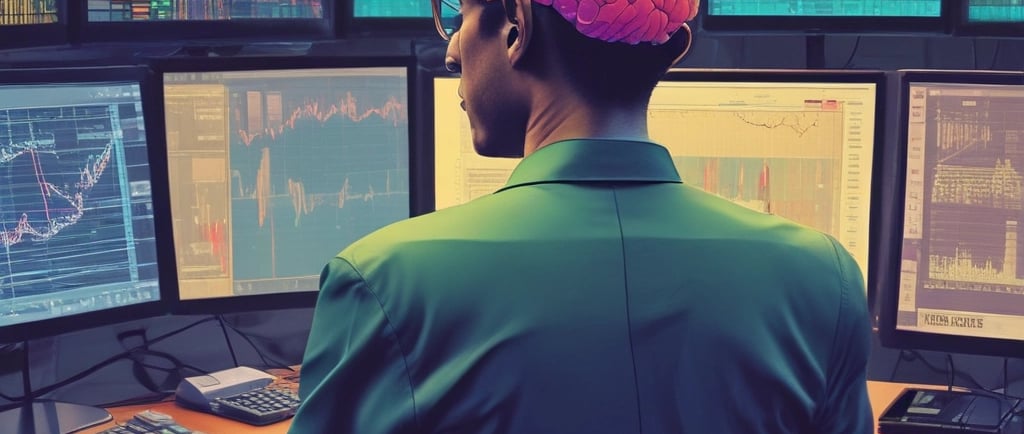Mastering the Mind: The Psychological Edge in Trading
X LINE TRADING
4/6/20252 min read


Understanding the Importance of Psychology in Trading
In the world of trading, the widely accepted belief is that technical skills and market analytics play a pivotal role in determining success. However, it is often said that trading is 90% psychological and 10% technical. This highlights the significant impact that psychological factors have on a trader's performance. To truly excel, one must not only master technical analysis but also develop a strong mental framework.
The Role of Emotions in Trading Decisions
Emotions play a crucial role in trading, influencing decision-making processes. Fear and greed are two dominant emotions that can lead to hasty decisions, resulting in potential losses. Fear can prevent a trader from executing a well-planned strategy, while greed may drive a trader to hold onto a position longer than necessary, hoping for further profits. Therefore, understanding one's emotional responses and maintaining discipline is vital for any trader looking to sustain success in the long term.
Strategies for Enhancing Psychological Resilience
To navigate the psychological challenges in trading, it is essential to adopt strategies that enhance psychological resilience. First, traders should establish a robust trading plan that outlines risk management rules and performance evaluation methods. This plan will serve as a guide during volatile market conditions, helping traders to remain focused and avoid emotional trading.
Additionally, practicing mindfulness techniques such as meditation or visualization can empower traders to maintain emotional balance. This approach not only cultivates patience and helps in managing anxiety, but it also reinforces a trader's confidence in their execution of market strategies.
Maintaining a trading journal is another effective strategy that can facilitate personal growth. Documenting trades enables traders to reflect on their decision-making processes, analyze emotional responses to trades, and learn from both successes and failures. This consistent practice fosters self-awareness and leads to more informed trading decisions.
Ultimately, recognizing that trading is not merely about the technical aspects but heavily reliant on mental fortitude can profoundly transform a trader's approach. As traders work towards mastering their psychological skills, they will come to realize that the real victories in trading often lie within, paving the way for sustained success in the constantly evolving financial markets.
